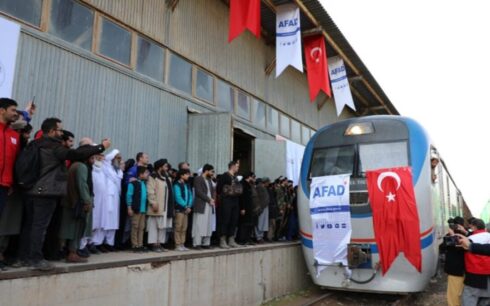ISLAMABAD, Pakistan — Afghan migrants living in Pakistan raised concerns about increasing harassment and arbitrary arrests by the police, including those with proper documentation, as tensions between the two neighboring countries deepen.
Jan Agha, a migrant from the Khogyani district of Nangarhar province, described the conditions he and others endured while in detention. Agha, who has lived legally in Pakistan with his wife and two children for three years, was recently released from police custody after being detained without cause in Islamabad.
“We were transferred from one prison to another. For two days and nights, we were not given food,” Agha said in an interview. “In prison, the problems were even worse — there was no proper food, no access to health services. Those who had money could hire a lawyer to secure their release, but many of us have families back in Afghanistan and came here for labor. We had nothing.”
Other Afghan migrants echoed his experiences, reporting a rise in detentions of documented Afghans. Atiq Shuja, another migrant, said, “Pakistani police often arrest our compatriots without any reason, even those with visas. Just a few days ago, around fifty people were arrested — most of them had valid documentation. They are sent to prison, where they face an uncertain fate and lack food, medicine, and healthcare.”

Political strains and migrant crackdowns
The escalating plight of Afghan migrants comes against the backdrop of strained relations between the Taliban-led government in Afghanistan and Pakistan, a relationship further complicated by Pakistan’s ongoing political and security challenges.
Protests led by the Pakistan Tehreek-e-Insaf (PTI) party, headed by former Prime Minister Imran Khan, have exacerbated domestic instability, which some observers say is being used as a pretext to target Afghan migrants.
Mohsin Dawar, a former member of Pakistan’s parliament and chairman of the National Democratic Movement, criticized the government for using political unrest as a cover for what he described as punitive actions against Afghan refugees.
Efforts to address the crisis
Abdul Jabar Takhari, the Taliban’s consul general in Karachi, acknowledged the issue but offered a more optimistic assessment of recent efforts to assist detainees. He reported that at least 4,258 Afghan migrants had been released from prisons in Sindh province and repatriated to Afghanistan, thanks to the efforts and funding of the Taliban-led government. However, he noted that 35 detainees remain in Sindh’s prisons.
Pakistan’s government, meanwhile, has introduced measures that critics say could further marginalize Afghan migrants. Mohsin Naqvi, Pakistan’s interior minister, announced this week that Afghan nationals living in Islamabad must obtain a No Objection Certificate (NOC) by December 31 or face expulsion.
“No Afghan national will be allowed to stay in Islamabad without an NOC after December 31,” Naqvi said, as reported by The Express Tribune.
Human rights groups and migrant advocates warn that the detentions and new requirements could worsen the already precarious situation for Afghan migrants, many of whom fled to Pakistan seeking safety and economic opportunities after the Taliban’s return to power in Afghanistan in August 2021.
With thousands of migrants facing legal uncertainty, a lack of basic necessities in detention, and the prospect of forced deportations, the situation is becoming a growing humanitarian concern.





